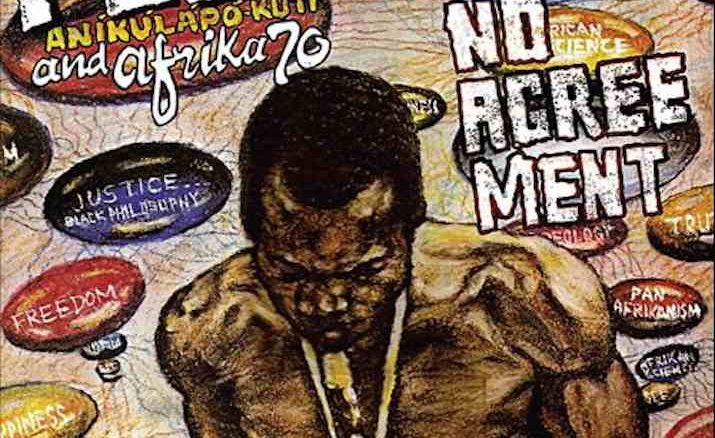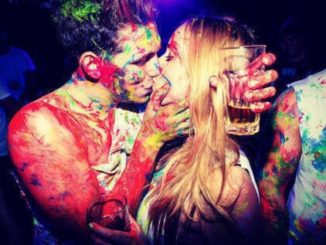
The birth of Afrobeat happened almost a decade after West African countries such as Nigeria and Ghana gained their independence from British rule in the 60’s. During a time where freedom and hope for future growth were being celebrated, it isn’t a surprise that optimism encouraged an abundance of homegrown creativity and talents.
One such talent was the king of Afrobeat, Fela Kuti. Fela coined the name ‘Afrobeat’ for the genre inspired by his club ‘Afrika Shrine,’ where he and his band would perform upbeat ‘Fuji’ and ‘highlife’ style music for a young energetic audience. For them, Afrobeat was a much needed halfway point between the traditional and contemporary. It became the musical anthem that embodied liberation from colonialism.
Prominent musical instruments used were heavy African drums, bass guitars and saxophones. The style also varied greatly as it contained elements found in Jazz, Funk and Yoruba chants. This all created a backdrop for English and Yoruba lyrics which were simple yet memorable in their literal but profound messages.
Unknown to him at the time was that this style would later travel across the world with its emigrating fans and interweave itself in many cultures where music was a prevalent part of social bonding. Even after his death, his sound was still transcending both African and western cultures. Shortly after his musical reign, along came Lagbaja who was just as eccentric and redefined the Afrobeat sound.
Lagbaja was well known for always wearing a traditional African print mask on his face. In the late 1990s, he introduced his music to West Africa. Like Fela, his sound wasn’t entrapped in one style of music but instead was a fusion of soul meets dance. His lyrics were often stories, jokes, puns or a statement about society. In one song alone, he would speak three languages mixed with a few colloquial phrases. He claimed that he wanted his music to sound undeniably African in its vibes.
As the rise of pop culture became prevalent in the west, Afrobeat also began to change. The elements of pop and glamour started trickling into it’s sound. Young upcoming artists influenced by pop and hip-hop started adding in dance moves and club beats, that ensured Afrobeat appealed to the masses. In the past decade, the world of Afrobeat has changed and many big names in the industry have worked alongside American musicians in creating the fusion of sound that keeps people on the dancefloor and is now greatly influencing chart music. A perfect example of this is Drake’s recent hit ‘One Dance’ which featured one of Nigeria’s biggest Afrobeat musicians, WizKid and reached number one in over a dozen countries.
Another Afrobeat musician that has worldwide fame is Fuse ODG, a British artist who originates from Ghana. ‘Antenna’ and ‘Azonto’ both featured a new style of dance that was easily recognisable on the dancefloors, exploring hip hop in the most African way possible. In 2014 he hit number 3 on the UK charts with ‘Dangerous Love’.
One thing Afrobeat has lost in recent years is its political resistance. Fela Kuti was known for his activism and he’d often use music to call on the government to invest in its people more. In the fast paced, manic ‘Day by Day, Demo crazy’ he questions the illusion of ‘democracy’. He plays on the word and claims it’s actually a demonstration of how crazy man is.
Nowadays, Afrobeat is about entertainment, dancing and living a lavish lifestyle. While this isn’t a bad thing, it would be beneficial if it could regress and maintain its ability to empower its listeners. Seun Kuti, Fela Kuti’s son, is carrying on his father’s legacy through his style of music with elements of rap. His music is truthful and aggressively tells people to question things more.
Afrobeat music has contributed greatly to the West African economy as it’s one of the most recognised money making industries globally. Afrobeat clubs hosting Afrobeat DJ’s and musicians have flourished in England, and Afrobeat nights such as Room 19’s recent Fela Kuti vs William Onyeabor tribute night in Wigwam are popping up in Dublin, but at a slower pace.
If Afrobeat had one aim in today’s society, it would be to create its own representation of what it means to be African and allow people to feel empowered by it.
Zainab Boladale



